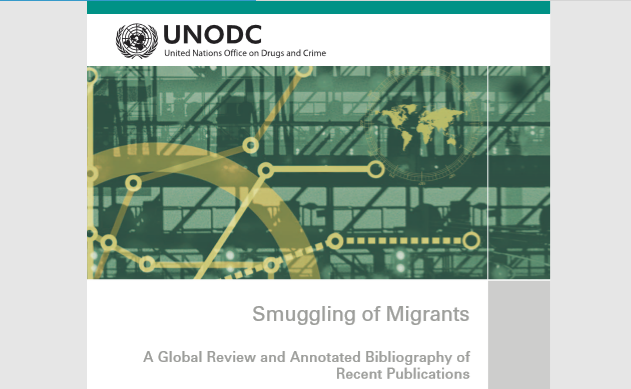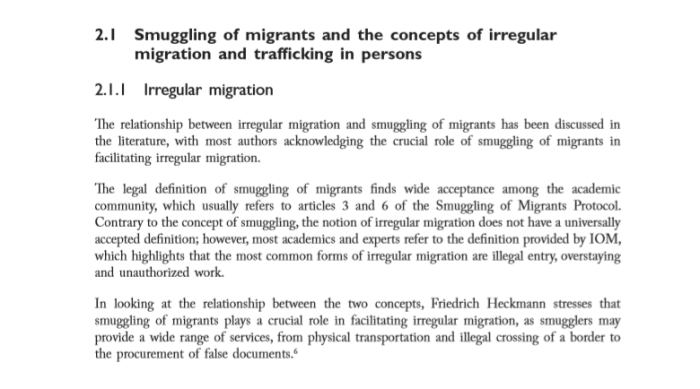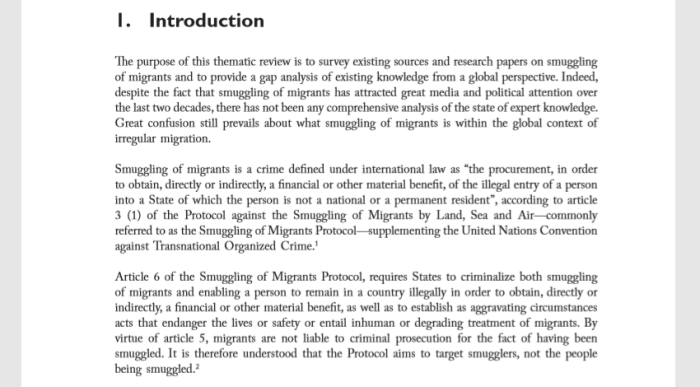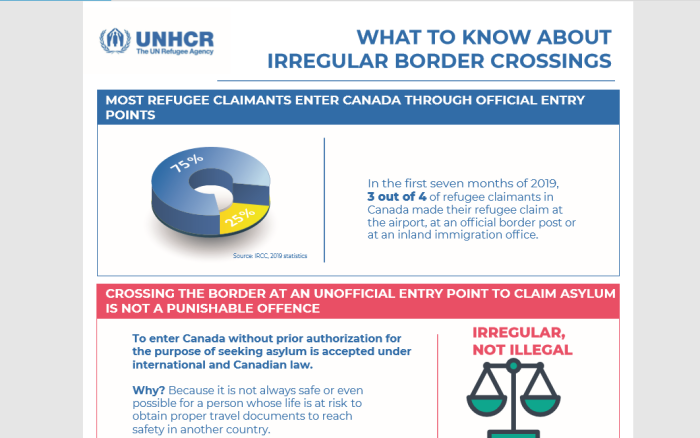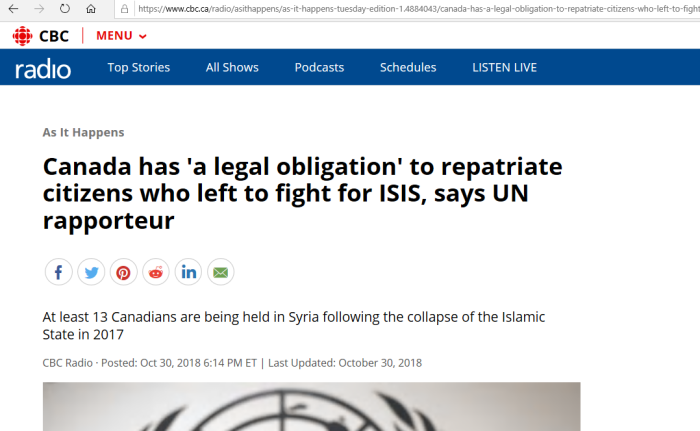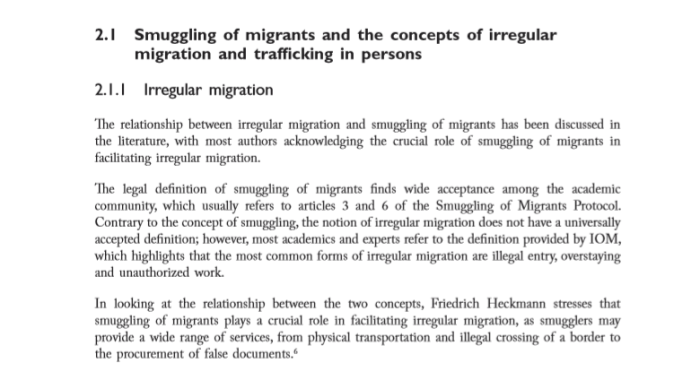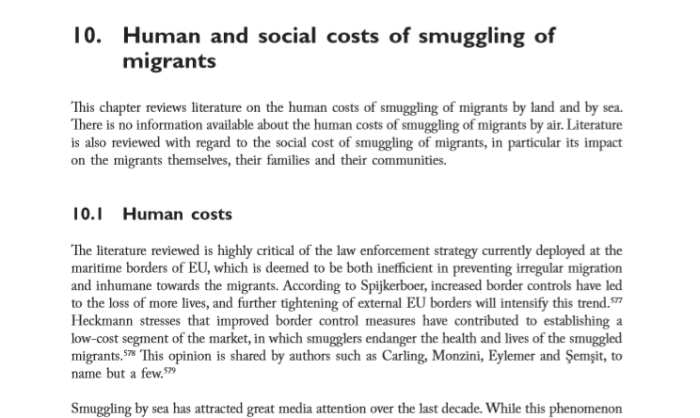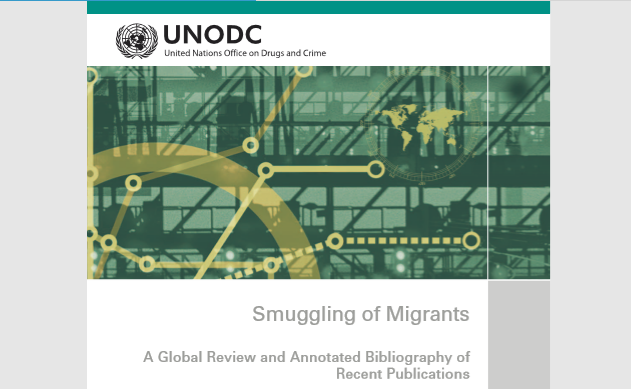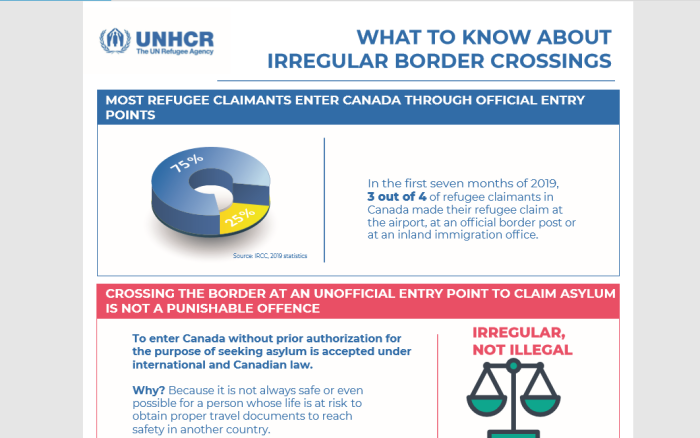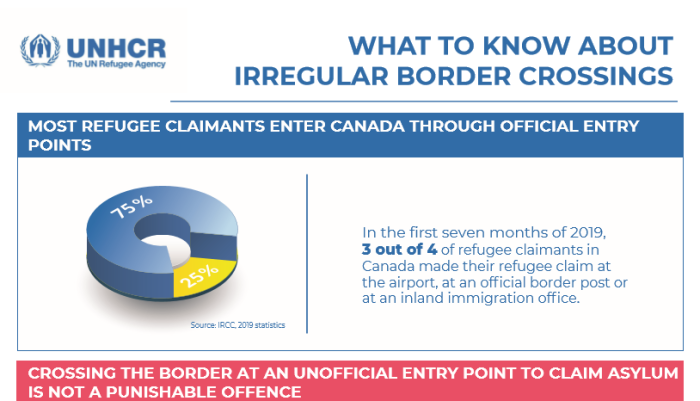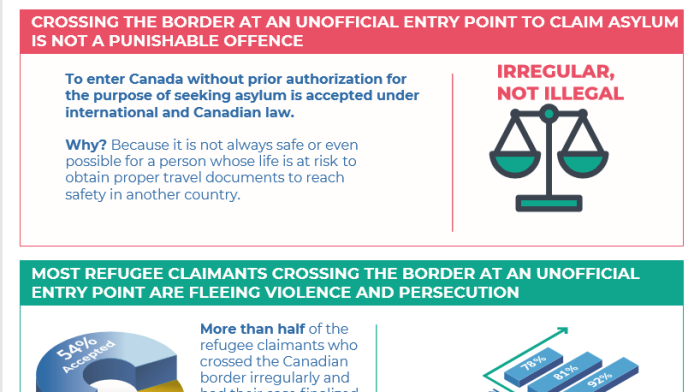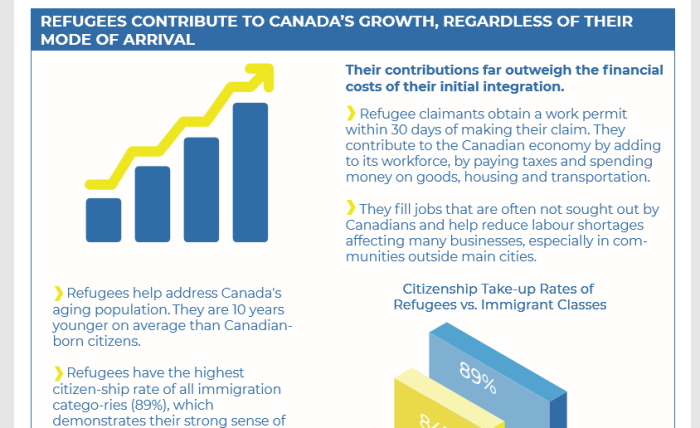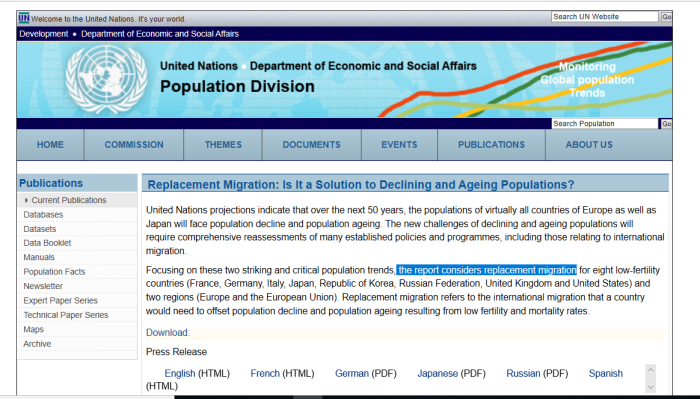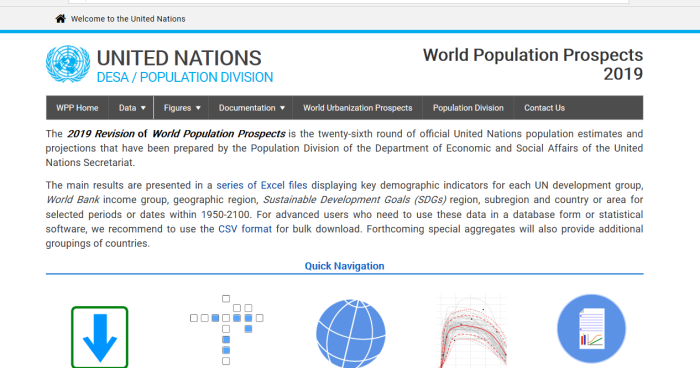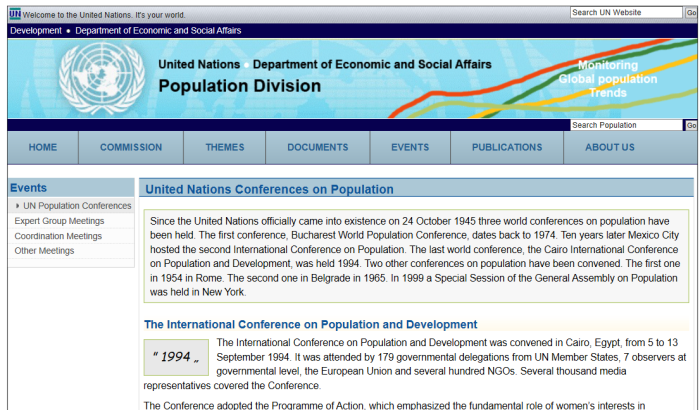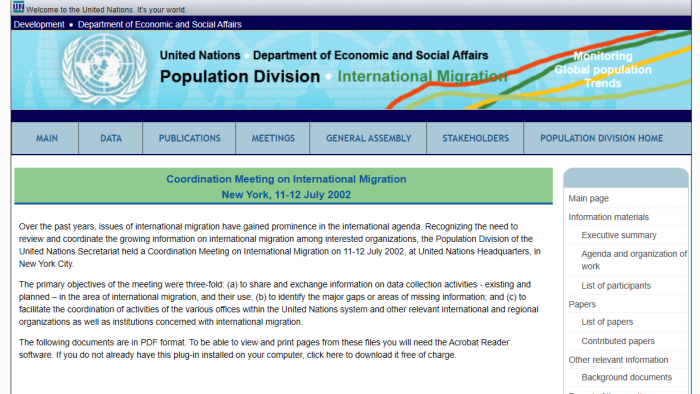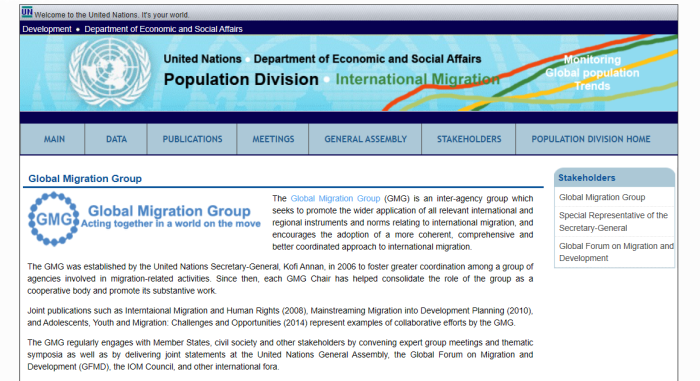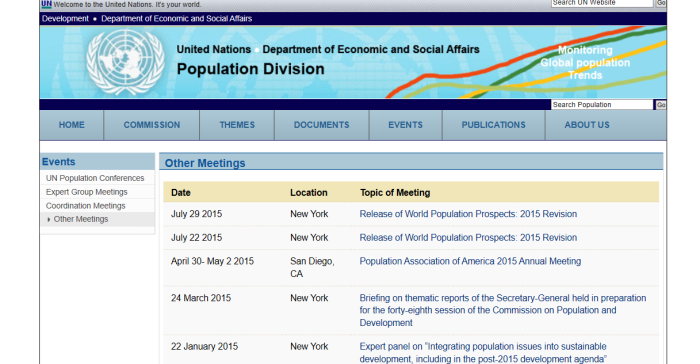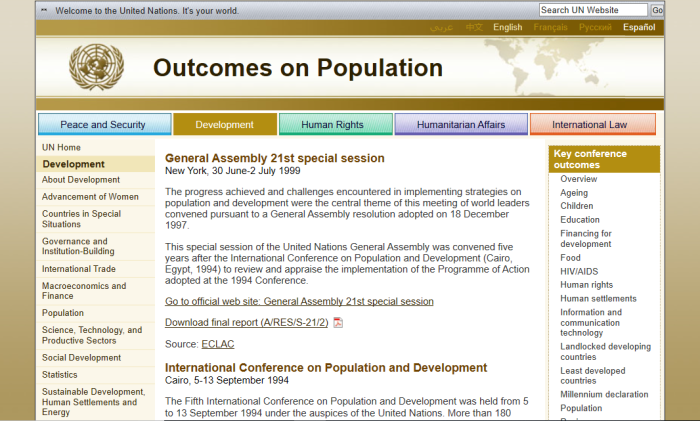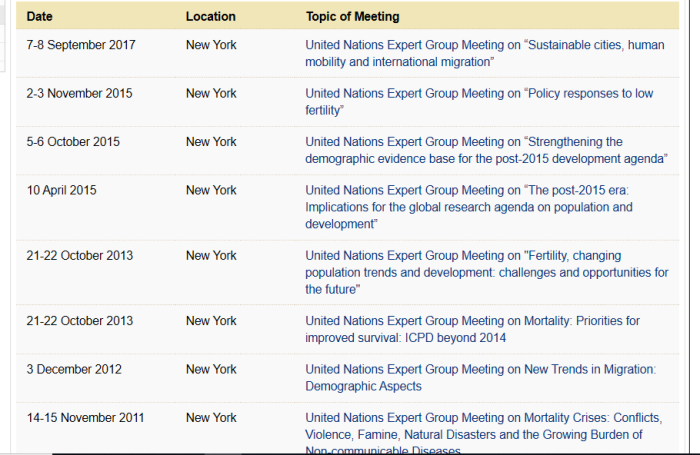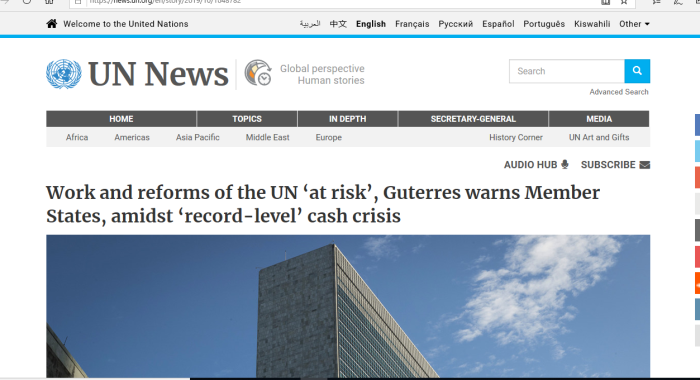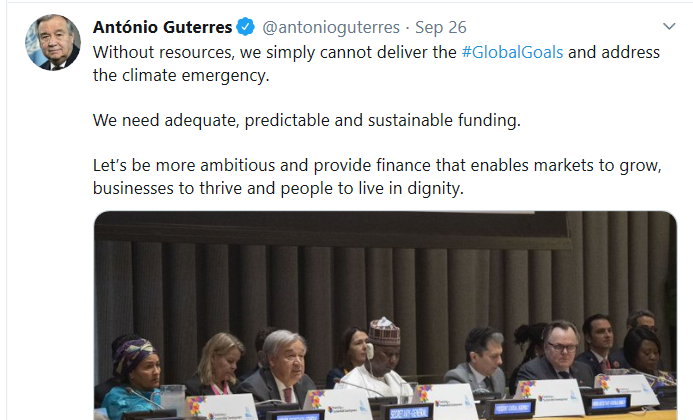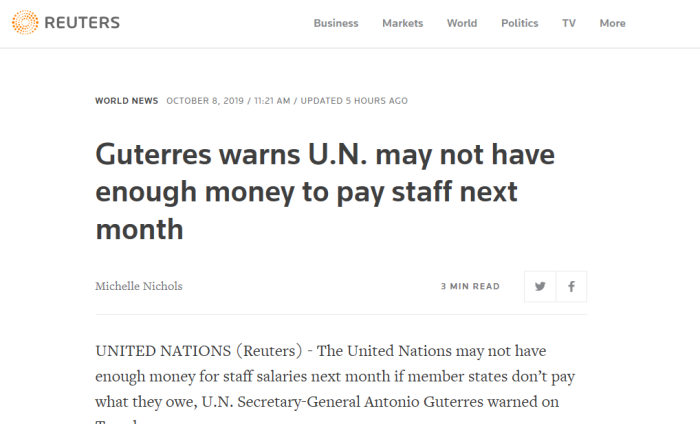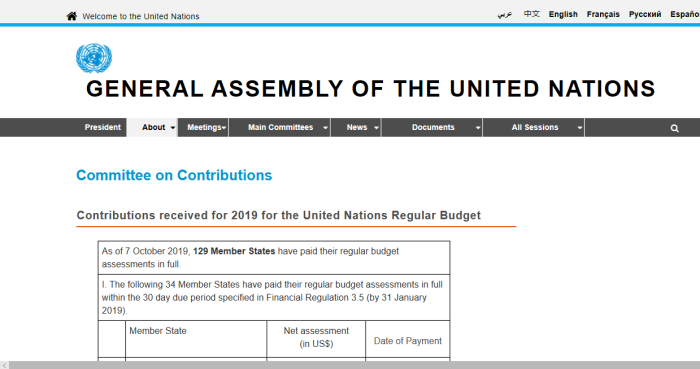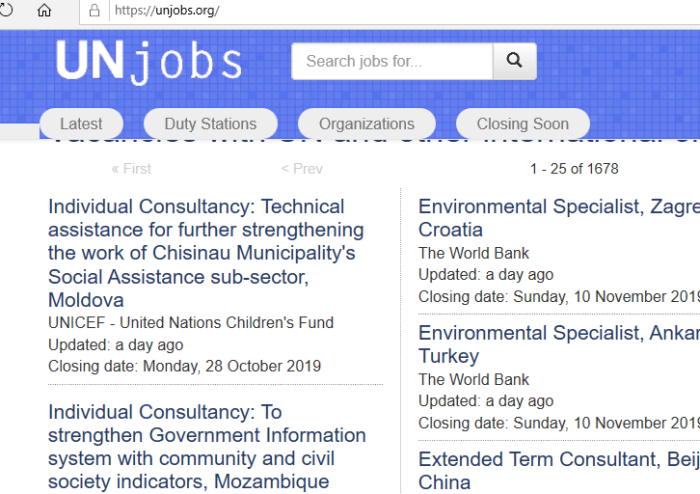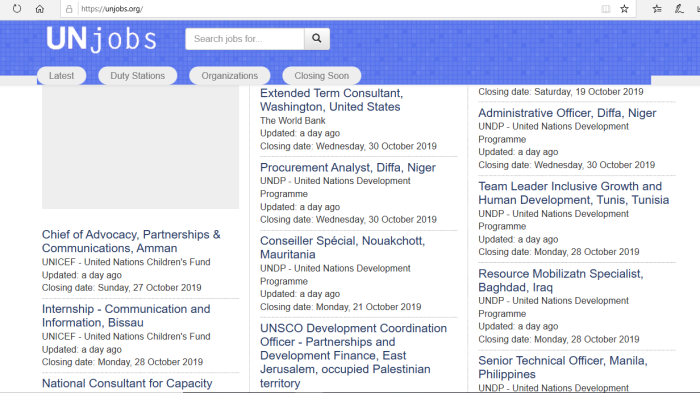(Quick search of UN index on “Islamophobia” gets 586 hits.)
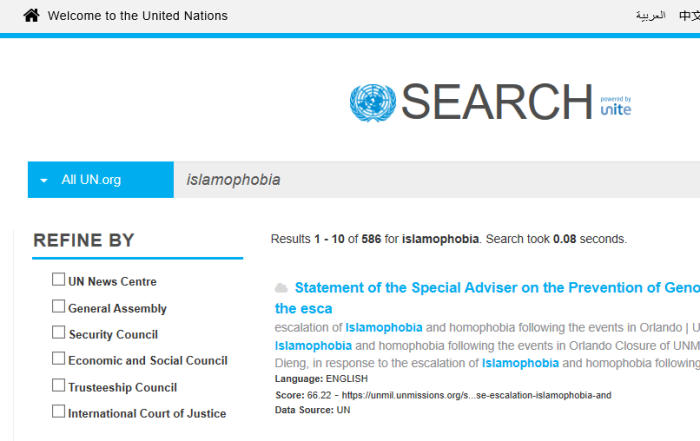
(The UN Special Rapporteur on freedom of religion or belief)
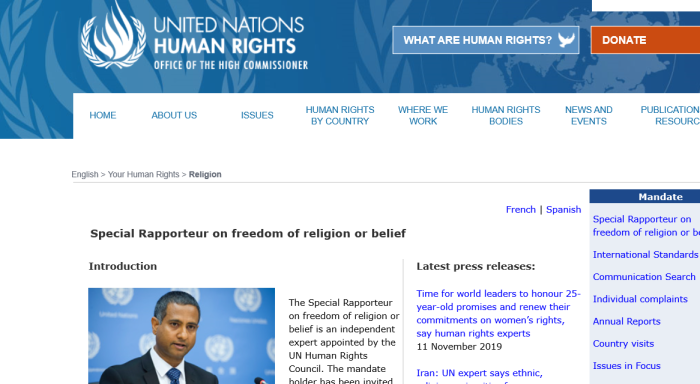
(2004 UN Secretary General’s speech on Islamophobia)
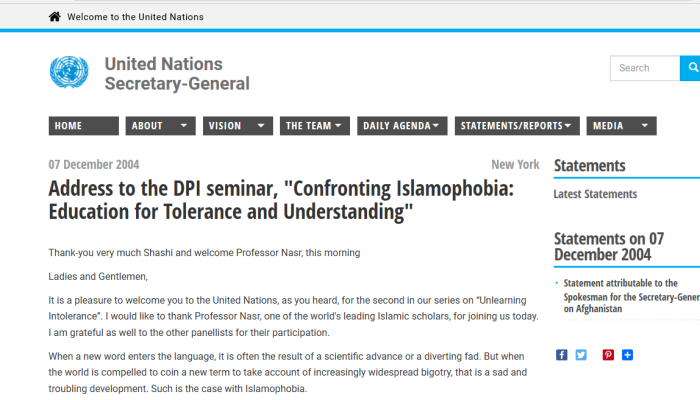
(2005 Resolution on religious defamation)
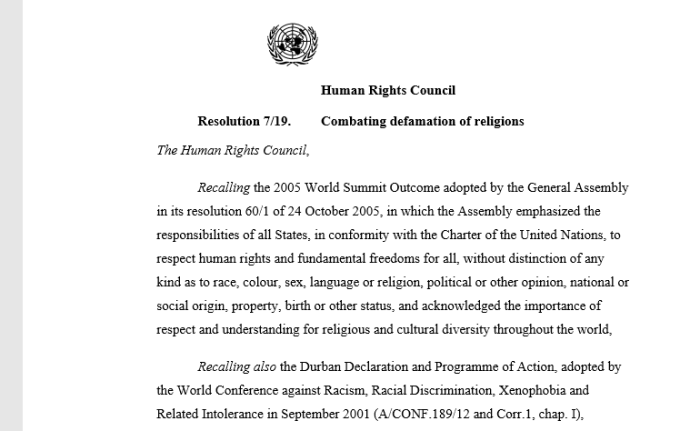
(2010 Organization Of The Islamic Conference. Promotes “hijra”, conquest by immigration, and complains about predictable backlash against Muslims who won’t assimilate.)
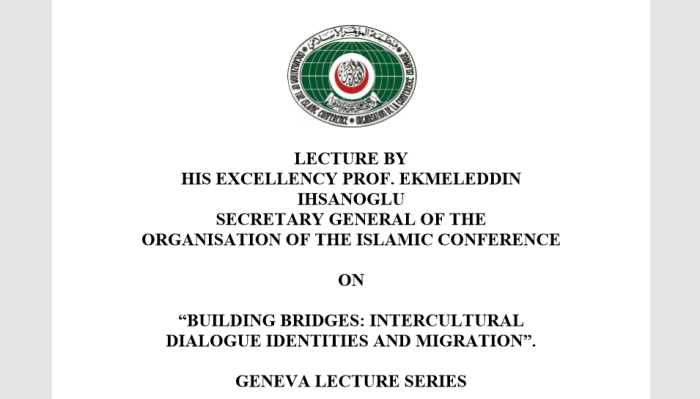
(2012 Turkey speaks at UN General Assembly. Calls for UN to establish legal framework against religious defamation.)
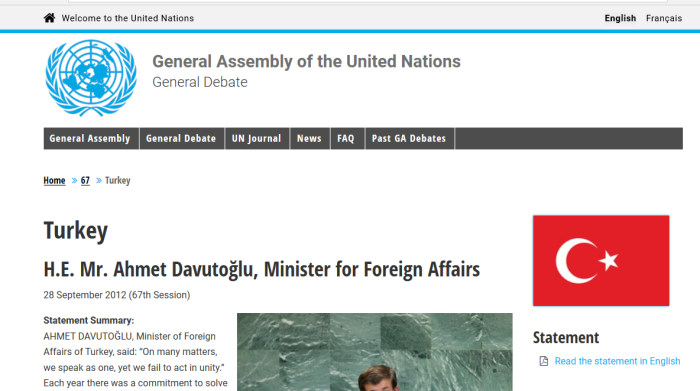
(2014 Committee on International Terrorism)
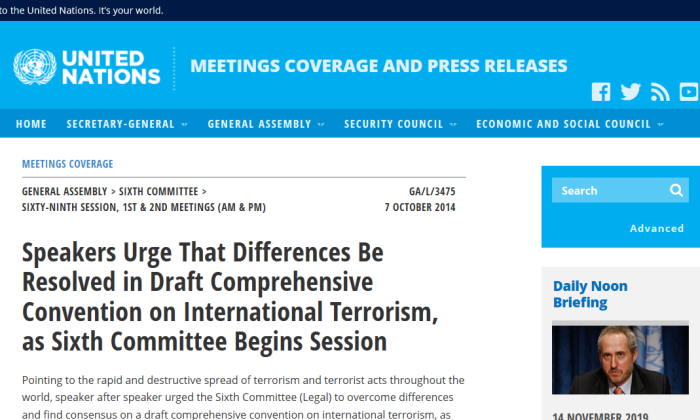
(2015 Must stem bigotry, Islamophobia)
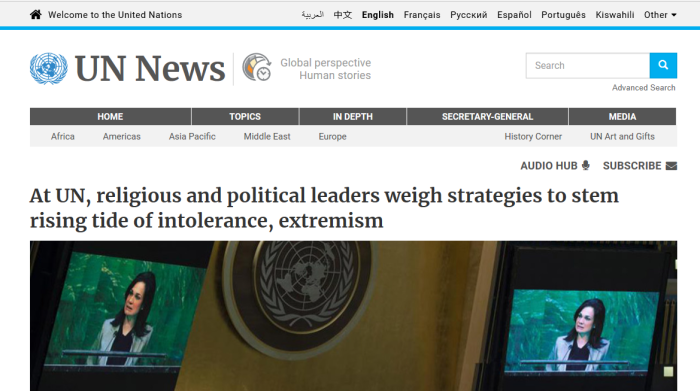
1. Important Links
CLICK HERE, for Proposed Global Ban On Islamophobia.
CLICK HERE, to search UN database on Islamophobia.
Religious Defamation/Islamophobia
CLICK HERE, for Confronting Islamophobia, Dec 2004.
CLICK HERE, for UN Res 7/19, Relig. Defamation, Mar 2008.
CLICK HERE, for free speech ==> intolerance, April 2009.
CLICK HERE, for UN on religious tolerance, Oct 2009.
CLICK HERE, for World Interfaith Harmony Week, Feb 2010.
CLICK HERE, for OIC calls For minority rights, Sept 2010.
CLICK HERE, for Afghan mission, religious defamation leads to violence, Afghanistan, Sept 2012.
CLICK HERE, UNGA: Islamophobia rampant, Sept 2012.
CLICK HERE, for wars caused by Islamophobia, Sept 2014.
CLICK HERE, for Islamophobia conflates terrorism, Islam.
CLICK HERE, for Islamophobia, intolerance rising, April 2015.
CLICK HERE, for Islamophobia Is Violence, June 2015.
CLICK HERE, for wrong To equate violence/Islam, Sept 2015.
CLICK HERE, for violence caused By bigotry, Oct 2015.
CLICK HERE, for Islamophobia poisoning society, Aug 2017.
CLICK HERE, for Iqra Khalid’s Islamophobia motion, M-103.
Internet Regulation/Censorship
CLICK HERE, for digital cooperation.
CLICK HERE, for Richard Lee on UN regulating the internet.
CLICK HERE, for proposed digital charter.
2. Context For This Piece
The topic of the UN wanting a global ban on criticising Islam has been addressed on this site before. However, after some reflection and a follow-up, there wasn’t nearly enough detail in that last piece.
While the UN search alone uncovered 586 articles, resolutions, drafts, or other documents under the search term “ISLAMOPHOBIA”, we will not be looking at them all.
Instead, several more will be added. Hopefully the bigger picture will become clear.
3. UN Secretary General’s Speech, Dec 2004
When a new word enters the language, it is often the result of a scientific advance or a diverting fad. But when the world is compelled to coin a new term to take account of increasingly widespread bigotry, that is a sad and troubling development. Such is the case with Islamophobia.
The word seems to have emerged in the late 1980s and early 1990s. But the phenomenon dates back centuries. Today, the weight of history and the fallout of recent developments have left many Muslims around the world feeling aggrieved and misunderstood, concerned about the erosion of their rights and even fearing for their physical safety. So the title of this series is very appropriate: there is much to unlearn.
Islam’s tenets are frequently distorted and taken out of context, with particular acts or practices being taken to represent or to symbolize a rich and complex faith. Some claim that Islam is incompatible with democracy, or irrevocably hostile to modernity and the rights of women. And in too many circles, disparaging remarks about Muslims are allowed to pass without censure, with the result that prejudice acquires a veneer of acceptability.
Stereotypes also depict Muslims as opposed to the West, despite a history not only of conflict but also of commerce and cooperation, and of influencing and enriching each other’s art and science. European civilization would not have advanced to the extent it did had Christian scholars not benefited from the learning and literature of Islam in the Middle Ages, and later.
Some points in the address to mention:
(a) European would not have advanced to the extent that it did without learning and literature of Islam? Okay, what exactly did it contribute?
(b) Disparaging remarks are allowed to pass without censure? Is this a warning that censorship is coming?
(c) The physical safety of Muslims? What about the physical safety of other people at the hands of Muslims?
4. UN Res 719, Religious Defamation, Oct 2005
2. Also expresses deep concern at attempts to identify Islam with terrorism, violence and human rights violations and emphasizes that equating any religion with terrorism should be rejected and combated by all at all levels;
3. Further expresses deep concern at the intensification of the campaign of defamation of religions and the ethnic and religious profiling of Muslim minorities in the aftermath of the tragic events of 11 September 2001;
6. Expresses concern at laws or administrative measures that have been specifically designed to control and monitor Muslim minorities, thereby stigmatizing them and legitimizing the discrimination that they experience;
9. Also urges States to provide, within their respective legal and constitutional systems, adequate protection against acts of hatred, discrimination, intimidation and coercion resulting from the defamation of any religion, to take all possible measures to promote tolerance and respect for all religions and their value systems and to complement legal systems with intellectual and moral strategies to combat religious hatred and intolerance;
14. Deplores the use of printed, audio-visual and electronic media, including the Internet, and of any other means to incite acts of violence, xenophobia or related intolerance and discrimination towards Islam or any religion;
15. Invites the Special Rapporteur on contemporary forms of racism, racial discrimination, xenophobia and related intolerance to continue to report on all manifestations of defamation of religions, and in particular on the serious implications of Islamophobia, on the enjoyment of all rights to the Council at its ninth session;
Sound familiar? This “non-binding” resolution passed in 2005, and contains much of the same language that is in Iqra Khalid’s blasphemy motion, M-103. The goal to ban criticism of Islam is a very long running one.
Almost as if there were legitimate issues they wanted to suppress.
5. UN Press Briefing, April 2009
Asked for her views on the remarks made yesterday by the President of Iran through which he linked Zionism to racism, she said it was regrettable and said she aligned herself to the sentiments purporting that this was a disservice to the people of Iran, a country of cultural values. She said it was regretful the Conference started off of the wrong footing but said she was hopeful it would get back on track. Personally, she said she firmly believed in freedom of expression regardless of how obnoxious it may be. Whether it was intolerant or not, depended on who said it. Statements from people in public positions which were intolerant should be frowned upon.
Responding to a question on defamation of religion, she said in the context of international law there was no such thing as defamation of religion; however, there was incitement on the basis of religion. If one took the notion of defamation of religion that meant all debates on religions had to be asphyxiated. The notion of the defamation of religion was not only detrimental to the mandate of freedom of religion but also to the whole concept of human rights.
A few interesting points in the briefing. We don’t refer to it as defamation of religious, but there is incitement of religion. Not sure there is much of a difference as far as Islam is concerned. Also, it was nice to point out that intolerant is really a point of view.
6. Rapporteur On Freedom Of Religion Or Belief, Oct 2009
Governments have a central role to play in either preventing or contributing to religious friction, an independent United Nations expert said today, noting that a State’s commitments to non-discrimination, as well as its policies and messages, can promote tolerance.
Asma Jahangir, the UN Special Rapporteur on freedom of religion or belief, told a news conference in New York that there are preventive measures governments can take to avoid further polarization on the basis of religion before it erupts into violence.
She also noted that while governments are talking about issues such as defamation of religion, there is “less addressing of the issue of religious incitement to violence, discrimination and hatred.”
This should really be a warning sign. Legitimate concern and criticism of religion can become grounds committing violence on the basis of “incitement to violence”. It’s interesting how the conversation shifts from DEFAMATION towards INCITEMENT, as if it were to provide a stronger justification for committing violence.
7. Org. Of Islamic Conference, Sept 2010
I would, in this presentation, essentially approach this multifaceted issue in the light of my experience and role as the Secretary General of the OIC-which with its 57 member states has, over the last four decades, evolved as the second largest International Organization after the UN. We are currently in the process of implementing a Ten Year Programme of Action. Propelled by the vision of ‘moderation and modernization, the Programme has identified priority areas of action. It accords primacy to multilateralism, human rights and cultural diplomacy as key items on the OIC agenda. Each of these issues is relevant to our discussion today. I would, therefore, be sharing a few thoughts in both the spirit and interest of a lively debate that-I am confident -would follow in this prestigious setting.
He then goes on to talk about how many parts of Europe and Eurasia either are majority Muslim, or have large Muslim populations.
The term is “hijra”, which is conquest by immigration. Large parts of those areas have been conquered over time and are now subject to Islamic law. He now gets into the very predictable politics of grievances.
Unfortunately, the Muslims of Europe and other parts of the Western world have become suspect because of a campaign launched by a number of motivated individuals and groups who appear to bear an incomprehensible grudge against Muslims and Islam. The Muslim population of Europe that has for centuries lived in peace and harmony with other communities, are today being regarded as aliens. They are under some pressure to give up some of their cultural traits and practices on the ground that these are not compatible with local customs and practices. This has resulted in a growing divide.
The current tension in relations between Islam and the West is pregnant with risk of transforming the notion of clash of civilizations a self-fulfilling prophecy. Islamophobia and discrimination against Muslims in the West appears to emanate from different physical appearance of Muslims and also in intolerance toward their religion and cultural beliefs.
I don’t see, particularly with the aforementioned historical background, as to why migration of Muslims to Europe and elsewhere in the West should be seen and portrayed as a threat today. Why should they be construed as aliens? Why must the symbols of their identity be denigrated? Why should the expressions of their identity be banned? It is indeed an unfortunate situation that challenges the identity of Muslim migrants. It also defies the salient features of European identity including tolerance, non discrimination and respect for human rights. Most importantly, it poses a clear and present danger to peace, security and stability in the regional as well as the global context.
Of course, what is intentionally left out of this is that the vast majority of Muslims have no intention of ever assimilating. Islam is an ideology that is build on achieving dominance through deceit, political methods, and outright violence.
The taqiyya is strong with this group.
The part about the IOC being 57 members is true though. As such, it wields tremendous influence over the UN and its agenda.
8. UN Afghan Ass’t Mission, Sept 2012
Kabul, 13 September – The United Nations Assistance Mission in Afghanistan (UNAMA) deplores the disrespectful, insulting and inflammatory material posted on the internet that seeks to denigrate the religious beliefs of Muslims and to incite violence and hate.
The United Nations rejects this despicable action and defamation of religion in all forms. Such intentional acts insulting the religious beliefs of others are unacceptable.
The United Nations itself is the symbol of religious tolerance and inclusive diversity representing as it does all the peoples of the world. We hold Islam and Muslims in the whole world in high esteem.
While the United Nations in Afghanistan joins the people and government of Afghanistan in strongly condemning this abhorrent action, nothing can justify violence or the further loss of life. Following the statement of the UN Secretary General of yesterday, UNAMA calls on all Afghans to exercise restraint in their indignation and to reject calls to violence or vicious behaviour.
The United Nations will continue to help the Afghan people lay the foundations for stability, security and lasting peace in Afghanistan.
While the Mission bent over backwards to kick ass and apologize for Islam, it was nice to at least hear that this violence is not justified. A good start.
9. Turkey At UNGA, Sept 2012
He underlined that the recent attacks against the Prophet Muhammad and against Islam were outright provocations that aimed to pit nations and peoples against each other. Turkey condemned all sorts of incitement to hatred and religious discrimination against Muslims and peoples of other faiths. Unfortunately, Islamophobia had become a new form of racism, like anti-Semitism, and it could no longer be tolerated “under the guise of freedom of expression”. Freedom did not mean anarchy, he stressed in that respect; instead, it meant responsibility. At the same time, he condemned the provocation and violence that followed, saying it “cannot be justified under any pretext”. Because of the alarming increase in the number of acts that defame religions, he believed the time had come to establish the denigration of all religions and their followers as a hate crime. He called for a universal policy and legal instrument that, while protecting free expression, should also ensure respect for religion and prevent intentional insults against faiths. “The solution should not be arbitrary,” he added, calling on the United Nations, in particular, to lead that effort and provide the international legal framework.
Turkey wants the UN to establish an international legal framework? As in what, a global ban on blasphemy? Perhaps it will shut down any speech remotely offensive to anyone.
Let’s be honest though. The real goal is preventing criticism of Islam. After all, you can criticize a political ideology freely, but a religious group is off limits.
10. Comm. On Int’l Terrorism, Oct 2014
AMR EL-HAMAMY (Egypt), speaking for the Organization of Islamic Cooperation (OIC), denounced atrocities committed by terrorists around the world and stressed that they contradicted the practices and principles of Islam. No religion or religious doctrine encouraged or inspired acts of terrorism, and therefore, none should be portrayed as such. He strongly condemned some politicians’ attempts to link Islam with terrorism, noting that such attempts played in the hands of terrorists and constituted an advocacy of religious hatred, discrimination and hostility against Muslims.
Reaffirming the OIC’s commitment to strengthening mutual cooperation, he said that only a coordinated approach by the international community would yield effective results. Further, a comprehensive strategy must address the root causes of terrorism, such as the unlawful use of force, aggression and political and economic injustice, among others.
He reiterated the need to distinguish between terrorism and the exercise of the legitimate right of peoples to resist foreign occupation, noting that such distinction was duly observed in international law and international humanitarian law. He also called for cooperation in banning the payment of ransoms to terrorist groups. Underscoring the need to make progress on the draft comprehensive convention, he emphasized his determination to resolve outstanding issues, including those related to the legal definition of terrorism and voiced support for the convening of a high-level conference under the auspices of the United Nations.
It is much the same story here: Muslims and Islam are being discriminated against. However, the topic of resisting occupations is brought up. Of course, depending on what one views as an occupation, almost any violence “could” be justified on those grounds.
11. Must Stem Intolerance, Bigotry, April 2015
However, with “troubling frequency” violent attacks and despicable crimes are being carried out and claiming the lives of innocent men, women and children. From Paris to Tunis, and from Garissa to Yarmouk and Johannesburg to Peshawar, “no person, society of nation is immune” from intolerance or the threat of violent extremism, he added. In places like Iraq Afghanistan and Mali, irreplaceable artefacts are being destroyed.
“There is no justification for such attacks. We must condemn all manifestations of intolerance, including anti-Semitism, Islamophobia and racism,” and all other forms of prejudice, harassment or violence, the General Assembly President said.
As such stories become all too common the world must stand up toward the threat of intolerance and radicalism. “Violent extremism is a global test and our response must solve the problem,” Mr. Ban said.
D’aesh, Al Shabaab and Boko Haram are part of a new generation of terrorist groups threatening international peace and security but the problem goes beyond them and the regions in which they operate. Racism, anti-Semitism, Islamophobia exists worldwide and to protect the innocent “we must safeguard our moral compass,” he said.
This leaves out the inconvenient fact that most terrorism in the world is committed by Muslims, in the name of Islam. But why should that detail get in the way?
12. Remember Digital Cooperation?
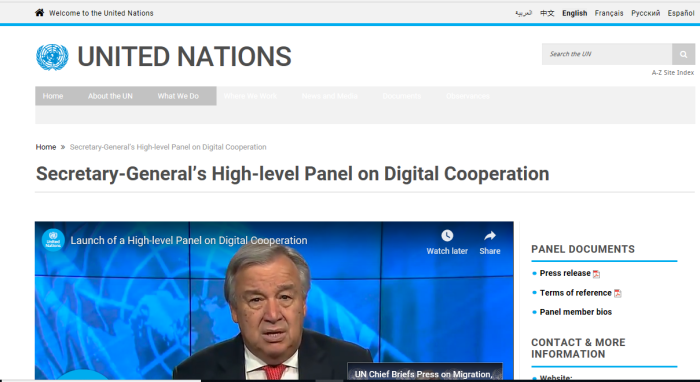
Digital Cooperation was earlier discussed on this site as well. Despite the harmless and well sounding verbiage, it is internet censorship, with the UN at the helm. A recent invention was the proposed Digital Charter, which was along the same lines.
One other note to mention: in a 2019 by-election debate Liberal Candidate Richard Lee proposed having the UN create a body to oversee and regulate the internet.
Internet regulation and banning criticism of Islam go hand and hand. In today’s world, the latter cannot be achieved without the former.
13. UN Global Migration Compact
OBJECTIVE 17: Eliminate all forms of discrimination and promote evidence-based public discourse to shape perceptions of migration
33. We commit to eliminate all forms of discrimination, condemn and counter expressions, acts and manifestations of racism, racial discrimination, violence, xenophobia and related intolerance against all migrants in conformity with international human rights law. We further commit to promote an open and evidence-based public discourse on migration and migrants in partnership with all parts of society, that generates a more realistic, humane and constructive perception in this regard. We also commit to protect freedom of expression in accordance with international law, recognizing that an open and free debate contributes to a comprehensive understanding of all aspects of migration.
c) Promote independent, objective and quality reporting of media outlets, including internet-based information, including by sensitizing and educating media professionals on migration-related issues and terminology, investing in ethical reporting standards and advertising, and stopping allocation of public funding or material support to media outlets that systematically promote intolerance, xenophobia, racism and other forms of discrimination towards migrants, in full respect for the freedom of the media.
Remember this gem? If you wanted to shut down criticism of an ideology, just call it bigotry or Islamophobia and the problem is solved.
14. This Is Just A Small Sample
As stated at the beginning, a quick search of “Islamophobia” in the UN records will net 586 hits. This is not just a one off. A quick search through them comes up with much the same pattern: blame everything on Islamophobia and intolerance, then demand actions be taken.
It’s actually an eerily well organized scam. Once you are not allowed to criticize a group, then they have already won.
Let’s be clear what is going on: these efforts are done in the name of censoring and shutting down legitimate criticism and concern of Islam. Few could publicly justify shutting down POLITICAL ideologies without backlash. However, if those goals were framed as RELIGIOUS in nature, then they would be relatively safe.

